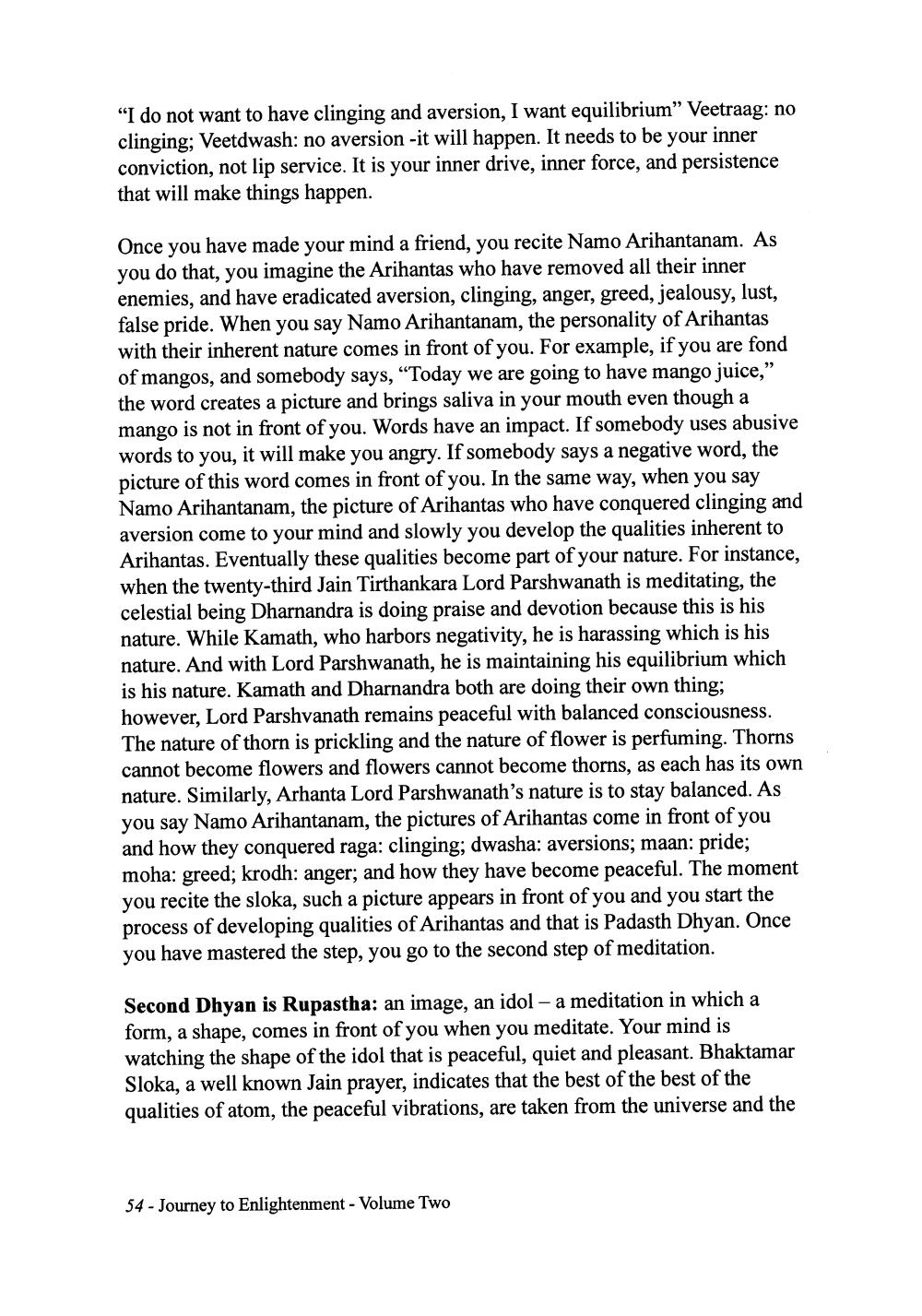________________
"I do not want to have clinging and aversion, I want equilibrium” Veetraag: no clinging; Veetdwash: no aversion - it will happen. It needs to be your inner conviction, not lip service. It is your inner drive, inner force, and persistence that will make things happen.
Once you have made your mind a friend, you recite Namo Arihantanam. As you do that, you imagine the Arihantas who have removed all their inner enemies, and have eradicated aversion, clinging, anger, greed, jealousy, lust, false pride. When you say Namo Arihantanam, the personality of Arihantas with their inherent nature comes in front of you. For example, if you are fond of mangos, and somebody says, “Today we are going to have mango juice,” the word creates a picture and brings saliva in your mouth even though a mango is not in front of you. Words have an impact. If somebody uses abusive words to you, it will make you angry. If somebody says a negative word, the picture of this word comes in front of you. In the same way, when you say Namo Arihantanam, the picture of Arihantas who have conquered clinging and aversion come to your mind and slowly you develop the qualities inherent to Arihantas. Eventually these qualities become part of your nature. For instance, when the twenty-third Jain Tirthankara Lord Parshwanath is meditating, the celestial being Dharnandra is doing praise and devotion because this is his nature. While Kamath, who harbors negativity, he is harassing which is his nature. And with Lord Parshwanath, he is maintaining his equilibrium which is his nature. Kamath and Dharnandra both are doing their own thing; however, Lord Parshvanath remains peaceful with balanced consciousness. The nature of thorn is prickling and the nature of flower is perfuming. Thorns cannot become flowers and flowers cannot become thorns, as each has its own nature. Similarly, Arhanta Lord Parshwanath's nature is to stay balanced. As you say Namo Arihantanam, the pictures of Arihantas come in front of you and how they conquered raga: clinging; dwasha: aversions; maan: pride; moha: greed; krodh: anger; and how they have become peaceful. The moment you recite the sloka, such a picture appears in front of you and you start the process of developing qualities of Arihantas and that is Padasth Dhyan. Once you have mastered the step, you go to the second step of meditation.
Second Dhyan is Rupastha: an image, an idol - a meditation in which a form, a shape, comes in front of you when you meditate. Your mind is watching the shape of the idol that is peaceful, quiet and pleasant. Bhaktamar Sloka, a well known Jain prayer, indicates that the best of the best of the qualities of atom, the peaceful vibrations, are taken from the universe and the
54 - Journey to Enlightenment - Volume Two




